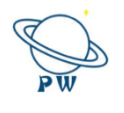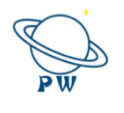Polyisocyanurate Insulation Market Trends & Future Outlook 2024-32: Size, Growth Opportunities, Key Drivers, Analysis & Report
Research Reports
Sep 20, 2024

The Polyisocyanurate Insulation Market is gaining traction due to the rising demand for energy-efficient buildings, coupled with growing concerns about environmental sustainability and stringent building regulations. Polyisocyanurate (PIR) insulation is a high-performance material commonly used for thermal insulation in various applications, including residential, commercial, and industrial construction, as well as in refrigeration systems and HVAC units.
The Polyisocyanurate Insulation Market size was estimated at USD 2.32 billion in 2022. The industry is expected to grow from USD 2.49 billion in 2023 to USD 4.62 billion by 2032, exhibiting a compound annual growth rate (CAGR) of 7.12% during the forecast period (2024 – 2032).
Key Market Drivers
Several factors are driving the growth of the polyisocyanurate insulation market:
-
Rising Demand for Energy-Efficient Buildings: With emphasis on reducing energy consumption in buildings, the demand for energy-efficient materials like PIR insulation is growing. Polyisocyanurate offers superior thermal performance compared to other insulation materials, helping buildings achieve higher energy efficiency and lower operating costs.
-
Growth in the Construction Industry: The construction sector is witnessing significant growth, especially in emerging markets. Infrastructure development, urbanization, and increasing investments in residential and commercial buildings are driving the demand for insulation materials to ensure compliance with energy efficiency and fire safety standards.
-
Sustainability and Environmental Concerns: Polyisocyanurate insulation is valued for its ability to reduce greenhouse gas emissions by minimizing energy loss in buildings. Additionally, PIR has a lower environmental impact compared to some other types of insulation materials, as it can be manufactured with low Warming Potential (GWP) blowing agents. This is increasingly important as more industries adopt eco-friendly practices.
-
Superior Fire Performance: PIR insulation has excellent fire-resistant properties, which makes it a preferred choice for applications in buildings where fire safety is a concern. Its high thermal stability and low smoke emission enhance its performance in fire-prone environments.
Get Sample @Â https://www.marketresearchfuture.com/sample_request/22417Â
Key Companies in the Polyisocyanurate Insulation Market Include:
Owens Corning
SaintGobain
Knauf Insulation
Covestro
The Chemours Company
Nippon Shokubai
Recticel
IcyneneLapolla Insulations
Wacker Chemie AG
Dow
Sika AG
BASF
Huntsman
Kingspan
Tosoh
Buy Now @Â https://www.marketresearchfuture.com/checkout?currency=one_user-USD&report_id=22417Â
TABLE OF CONTENTS
1. EXECUTIVE SUMMARY
1.1. Market Overview
1.2. Key Findings
1.3. Market Segmentation
1.4. Competitive Landscape
1.5. Challenges and Opportunities
1.6. Future Outlook
2. MARKET INTRODUCTION
2.1. Definition
2.2. Scope of the study
2.2.1. Research Objective
2.2.2. Assumption
2.2.3. Limitations
3. RESEARCH METHODOLOGY
3.1. Overview
3.2. Data Mining
3.3. Secondary Research
3.4. Primary Research
3.4.1. Primary Interviews and Information Gathering Process
3.4.2. Breakdown of Primary Respondents
3.5. Forecasting Model
3.6. Market Size Estimation
3.6.1. Bottom-Up Approach
3.6.2. Top-Down Approach
3.7. Data Triangulation
3.8. Validation
4. MARKET DYNAMICS
4.1. Overview
4.2. Drivers
4.3. Restraints
4.4. Opportunities
More Info @Â https://www.marketresearchfuture.com/reports/polyisocyanurate-insulation-market-22417Â
Market Trends
Several key trends are shaping the future of the polyisocyanurate insulation market:
-
Growing Adoption of Green Building Practices: The construction industry is increasingly adopting green building certifications, such as LEED (Leadership in Energy and Environmental Design) and BREEAM (Building Research Establishment Environmental Assessment Method), which prioritize the use of energy-efficient and sustainable materials. PIR insulation aligns with these initiatives due to its high thermal efficiency and lower environmental impact.
-
Technological Advancements in PIR Production: Innovations in PIR manufacturing processes are improving the insulation’s performance, making it lighter, more efficient, and easier to install. Improvements in blowing agent technology have also reduced the environmental footprint of PIR production.
-
Increasing Use in Cold Chain Applications: The refrigeration and cold storage industry is expanding due to the growing demand for temperature-sensitive goods, such as pharmaceuticals and perishable food products. PIR insulation is being increasingly used in cold chain logistics and refrigeration systems due to its excellent thermal performance and ability to maintain stable temperatures.
-
Focus on Reducing Carbon Footprint: Manufacturers are focusing on producing PIR insulation with lower environmental impacts by using eco-friendly blowing agents and reducing energy consumption in production. This aligns with sustainability goals and the increasing adoption of energy-efficient materials in construction.
Browse More Reports:
Compacted Graphite Iron Market Research Report – Forecast to 2032
Bpa Free Thermal Paper Market Research Report – Forecast to 2032
Automotive Lifts Market Research Report – Forecast to 2032
Nickel Mining Market Research Report – Forecast to 2032
Polyisocyanurate Insulation Market Research Report – Forecast to 2032
Contact Information:
Market Research Future (part of WantStats Research and Media Private Limited), 99 Hudson Street, 5Th Floor, New York, New York 10013 United States of America +1 628 258 0071 Email: [email protected] Website: https://www.marketresearchfuture.com
Tags:
Research Newswire, English




